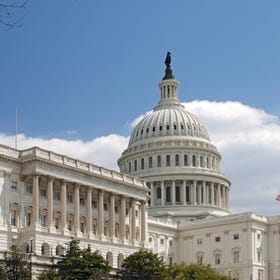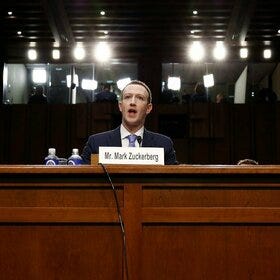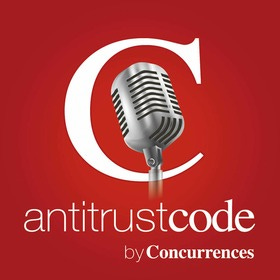Originally Posted August 12, 2022
These may be the sleepy “dog days” (caniculares dies) of August (associated with Sirius, the “dog star”), but antitrust policy is not on vacation. This month I highlight some provocative public events, commentaries, and articles, touching on platforms, innovation policy, regulation, and other topics.
What Big Tech's Online Practices Mean for Competition Policy | Bipartisan Policy Center
On July 26 I participated in an online antitrust policy debate, sponsored by the Bipartisan Policy Center, entitled “What Big Tech’s Online Practices Mean for Competition Policy.” I was joined by Brookings Institution Visiting Fellow Bill Baer (former Assistant Attorney General for Antitrust), Diana Moss (President of the American Antitrust Institute), and Ashley Baker (Policy Director at the Committee for Justice). I emphasized that proposed federal antitrust legislative proposals to curb “self-preferencing,” among other practices, would slow innovation, reduce economic efficiency, and harm consumers.
Competition in International Shipping: What the Administration Misunderstands about the Current Crisis, and How the Jones Act Makes Everyone Worse Off | Mercatus Center
In a Mercatus Policy Brief, Andrew Mercado and I highlighted the flaws of the Biden Administration’s approach to shipping policy and the continued failures of the Jones Act – a century-old protectionist statute that benefits the American shipbuilding industry but harms everyone else. In particular, the highly publicized American supply chain crisis that has bedeviled the Biden Administration is in substantial part due to the Jones Act inefficient and anticompetitive restrictions on shipping.
The Bitter Fruits of Federal Antitrust ‘Reform’ Legislation - Truth on the Market
I authored a new Truth on the Market commentary on proposed antitrust legislation (here), explaining how it would reduce innovation, raise litigation costs, and generate costly economic uncertainty.
Unintended Consequences: The High Costs of Data Privacy Laws | The National Interest
In an article published by the National Interest, Mercatus MA Fellow Satya Marar and I explained that the proposed bipartisan American Data Protection and Privacy Act would have serious negative unintended consequences. It would have huge compliance costs and would deter the development of new technologies that benefit consumers, among other harmful effects.
Upcoming Events
Antitrust Code by Concurrences
On September 6, I will discuss digital merger with tech reporter Jennifer Baker, as part of the Concurrences “Antitrust Code” podcast series. I will notify you as soon as it is released.
concurrences.podbean.com • Share
Does Biden Competition Policy Harm Competition? | Mercatus Center
On September 12 at 2pm, I will host a Mercatus Center webinar focused on the President Biden’s July 2021 Executive Order on Competition. The webinar will feature a discussion moderated by me, with former FTC Consumer Protection Director and George Washington University Professor Emeritus Howard Beales; American Enterprise Institute Senior Fellow and University of Florida Professor Mark Jamison. The webinar will assess whether this Order, which claims to promote competition, would actually undermine competition. You can sign up for this webinar here.
What’s Alden Reading?
Antitrust Chronicle™ - Competition Policy International July Issue on Innovation
The dog days of August have traditionally been a time for rest, recharging of mental batteries, and reflection. For antitrust mavens who are looking for some provocative out of the box thinking to spice up their vacation reading, I highly recommend the July issue of The Antitrust Chronicle, which provides some big picture and “outside the box” insights on competition and innovation policy. (DC policymakers should take note.)
www.competitionpolicyinternational.com • Share
In this issue, Jonathan Barnett explains why many big technology companies have supported “weak patent” policies (hint, it benefits them by disadvantaging smaller and more innovative firms). Eric Hovenkamp stresses that proposed antitrust “reform” bills before Congress would discourage the introduction of new products, harming competition and innovation. Kristen O’Shaughnessy, Danny Sokol, Jaclyn Phillips, and Nathan Swire argue that sound law and economics counsel against creating theories of single firm antitrust violations based on the possession of “big data.”
Kristen Osenga finds that the Biden Administration’s weakening of American patent rights harm U.S. innovation and threaten our national security interests. David Teece looks at foreign competition and innovation policies (especially China’s) and determines that “technology policy, industrial policy, and competition policy can no longer live in hermetically sealed silos.”
Jorge Contreras calls for a consolidated, international mechanism for the global setting of FRAND rates. Dina Kallay assesses case developments and concludes that “SEP holders are free to choose their licensing model, and technology users cannot impose a compulsory duty on them to do business on any particular terms preferred by the plaintiffs.”
Finally, Jorge Padilla argues that empirical evidence “shows that the protracted debate about patent holdup mainly benefits those implementers who engage in patent holdout.” Padilla explores the harmful effects that holdout has on innovation and economic efficiency.











